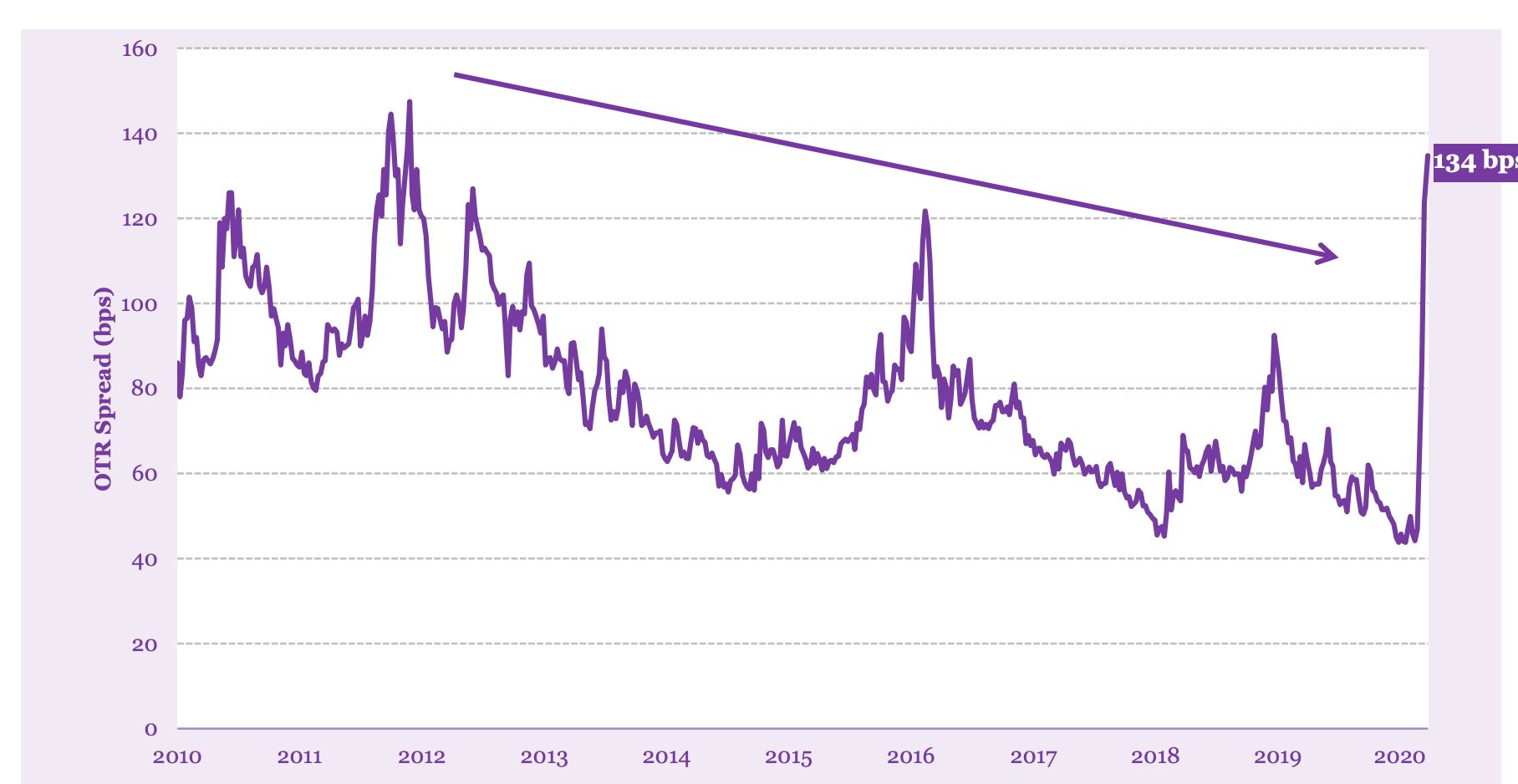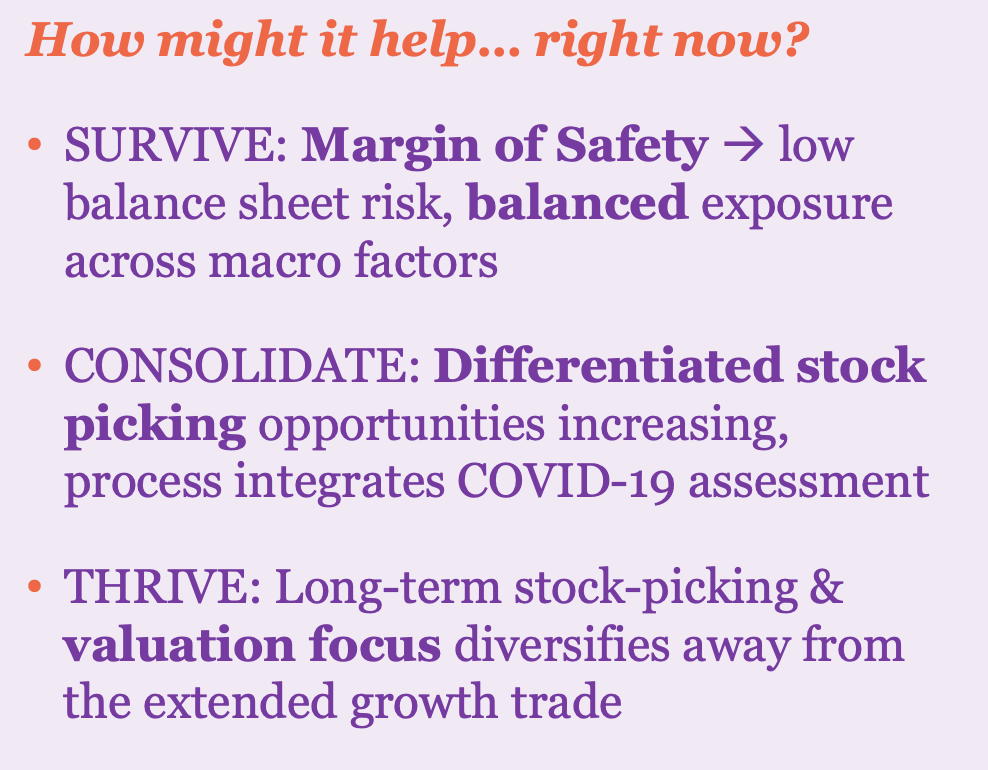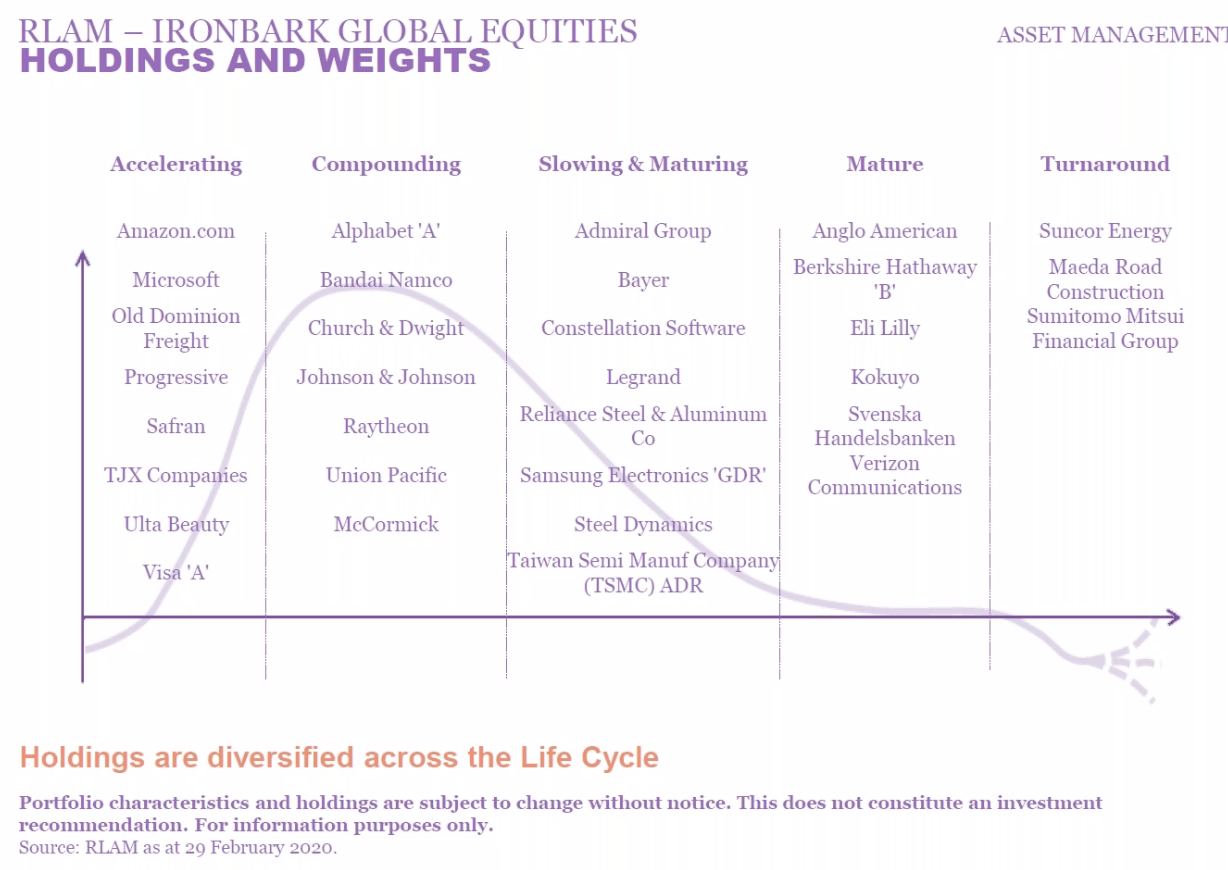Survive, Consolidate and Thrive

At times like these, old contacts of mine start to resurface, asking me what I think will happen next in markets. If I could predict markets, I'd have shorted the market in mid-Feb and I'd be self-isolating on a brand new yacht right now. However, I can't. So, I'm not.
The next best thing after clairvoyance, however, might be to keep an eye on what the debt markets are saying. Just as they did leading into the GFC, they gave a good warning in January this year that equities were about to take a bath. And right now, credit spreads are one such signal to keep an eye on.
This issue of spiking credit spreads - and what they mean - came up during a recent webinar presentation by Peter Rutter from Royal London Asset Management.
I sat in on the call and have summarised some of the key points for you below, including why we may be looking at 'an exceptional long-term opportunity', the stocks Peter is holding right now, and why it's time to survive and consolidate, so we can thrive when this has all passed.
Watch out for credit spreads
While Peter flagged a worrying jump in equity risk premia, the chart that really jumped out was the sharp jump in credit spreads. This has bucked the steady trend lower over the last decade, to triple very quickly in recent weeks.
 Source: Royal London Asset Management
Source: Royal London Asset ManagementCredit spreads show the difference between the yields in investment-grade credit and US treasuries, and so provide a proxy for the perceived risk of corporates defaulting.
This huge move takes them back to where they were back in 2011, and are a warning of the big hole appearing where the economy used to be. As Peter put it in his presentation, we are seeing:
“...an incredibly dramatic increase in credit risk in bond markets, signalling the fears of bankruptcy for corporates ... That reflects the reaction to the COVID-19 virus which is causing a genuinely massive - and possibly the largest - cyclical slowdown that we may know in the history of modern records. We could be talking 10-20% of GDP on a quarterly basis is imminent in some economies as a result of this".
Peter talked through a few potential scenarios, including the low probability that the virus drags on for an extended period as infections repeat.
"The 'super-bear' case is that we never really get immunity to the virus, like Herpes, Eppstein-Barr or HIV, and that it continues to impact people's health".
However, his base case for the moment was more manageable, in that we see a protracted slowdown for 3-4 months and then a gradual recovery after that as lockdowns cease.
Fixed interest dries up, while equities are super-volatile
Another interesting point he made was the difference between how asset classes are behaving in the current environment.
Fixed interest has seen very challenging market conditions in terms of liquidity, which he said were as bad, or arguably worse than anything seen since the GFC.
In contrast, equities remained highly liquid, even in small caps which can have a nasty habit of leaving investors high and dry during difficult times. As a fund, Royal London runs A$60 billion of equities and they had not experienced any issues.
The big challenge for equities though had been the immense volatility, which has seen numerous headlines reading "Biggest one-day move since..." in the last few weeks, with some mind-boggling jumps in both directions. When a 3% move feels like a quiet day, you know things have been volatile. Peter noted that the market structure is making this volatility worse:
“There is a huge amount of money run in equities from ETFs, leveraged ETFs, quant funds, and large asset allocators, but they have no framework to navigating this framework as there is no backtesting of COVID-19, causing the most incredibly dramatic sector and market volatility".
Exceptional long-term opportunity for investors
In terms of how Royal London is navigating this extremely challenging market, the theme running through the presentation was 'Survive, Consolidate, Thrive' as he summarised in this slide.

What stood out was how bullish Peter sounded on the opportunity arising through the falls in equity markets, with him saying that:
"...we do see the recent pullback as an exceptionally interesting long-term investment opportunity for investors”.
Part of the Royal London investment strategy is to allocate every company in the investment universe into one of five corporate Life Cycle categories thus:
- Accelerating
- Compounding
- Fading
- Maturity
- Turnaround
Peter expanded on what each of these categories means in an interview I did with him last year, which you can read here. In the webinar, he pointed out that, across the market, it has been the 'accelerating' and 'compounding' stocks that have delivered the best performance in the last few years. He also included a slide that covered the stocks in the portfolio right now:

Interestingly, one of the companies above that Peter discussed, Progressive Corporation (NYSE:PGR), which provides car insurance, is one of a very few companies to actually benefit from the fallout of COVID-19. With American roads now mostly empty, there are very few car accidents, and therefore very few car insurance claims, which should support higher margins for Progressive!
Hear the presentation in full here
You can watch the presentation and Q&A in full by clicking here, and get Peter's full view on what is going on right now, how they are approaching it, and how to survive and consolidate, so you can thrive once the storm passes.
1 topic

Alex happily served as Livewire's Content Director for the last four years, using a decade of industry experience to deliver the most valuable, and readable, market insights to all Australian investors.
Expertise

Alex happily served as Livewire's Content Director for the last four years, using a decade of industry experience to deliver the most valuable, and readable, market insights to all Australian investors.
